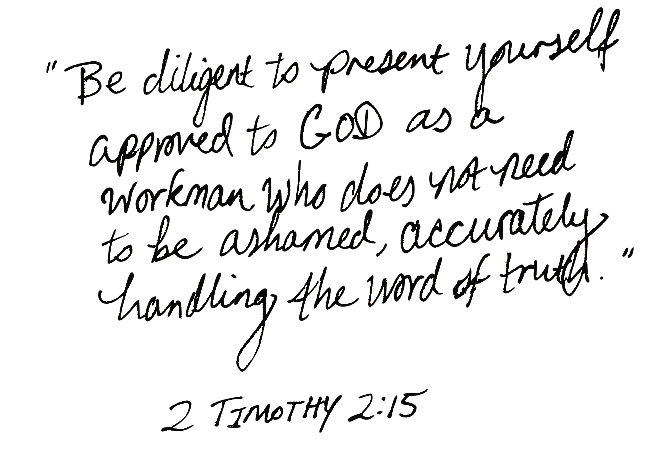 “How do you gain protection against the dragon? By naming the dragon.” – from The Hobbit Companion‘s analysis of the dragon Smaug in J.R.R. Tolkien’s The Hobbit
“How do you gain protection against the dragon? By naming the dragon.” – from The Hobbit Companion‘s analysis of the dragon Smaug in J.R.R. Tolkien’s The Hobbit
I’m a History major, and the history of science is one of my primary interests. On a technical level science is not my specialty, though the recent debate on this blog is prompting me to want to get into it again. I’m not quite sure I want to change majors over it yet, but I’ll admit that it has crossed my mind. I’ve got this desire to get my hands in the dirt and see the evidence for myself instead of relying on a crossfire of scholarly links that tell a different story perpetually (“Well according to this…” “Oh yeah? Well take that!”). I was always a hands-on sort of child, so science was my favorite subject for years. I’m looking forward to my Physical Geography class this summer. However, there are more facets to the origins debate than that of science. I don’t intend to leave the scientific debate hanging, but there is a question nagging my mind that I want to take the opportunity to ask my skeptical commenters.
Richard Dawkins admits that we cannot scientifically verify the origin of life. He is even open to the idea that intelligent design could have been involved, so long as that design was not divine. In a purely argumentative sense, I find that to be a mystifying aspect of atheists. Why would an atheist not mind the concept of aliens creating life, but have a problem with God doing it? It seems to me that the core of this rebellion against God is directed at the Biblical God, Yahweh. Or, as some might define Him in a more politically correct fashion, “the God of the Old Testament” (ha, as though He’s a completely different God in the New Testament).
Here is an illustration of the rebellion I’m speaking of. There is a popular atheist YouTube channel called NonStampCollector that produces videos that appeal to anyone of the doubting persuasion. One particular video was shared with me by a liberal college acquaintance. It is titled “Forgiveness, Grace, and God’s Death Sentence” and attempts to discredit Yahweh by comparing Him to psychotic parents who torture their son for their daughter’s disobedient act of getting chocolate out of the refrigerator. This argument is riddled with so many intellectual errors that it couldn’t hold water. Some talk of Creationists using “strawman” arguments. Well, this is a strawman argument if I ever saw one, but I think that many Christians might be at fault for it instead of atheists. Too many believers try to dismiss the Old Testament instead of study it. Thus, they aren’t presenting the Bible wholly and accurately. [Note: I have historical science reasons for believing the Bible is accurate; I’ll address them later.]
If you watch the video, you are probably so appalled at God that you don’t realize a significant character is missing from the story. From the videos I’ve watched by NonStampCollector (who seems to have too much time on his hands), the trend is that Yahweh is made out to be the villain, the bully, the enemy. He’s the bad guy in this version of the story. But the individual who would approve of this view doesn’t show up in the videos. The most rebellious God-hater of all never even makes a cameo appearance. My initial theory is that this is because he is actually telling the story in first person, slanted to make himself out to be innocent (but that would be over an atheist’s head – never mind it now). His name is Satan, if you haven’t already figured that out. I never see the devil mentioned in these atheist YouTube videos, with the possible exception of occasionally being portrayed as the horned, red-spiked-tail goofy caricature that nobody takes seriously.
In this particular video Eve is not shown to be tempted by Satan, which permits him to escape the blame (and why was Adam left out? Adam is just as guilty, and could probably have reversed the curse if he rebuked the serpent). Sin is made out to be a harmless, malum prohibitum act, and in fact the punishment is made out to be only for the first sin of Adam and Eve rather than any subsequent individual sins. Thus, the event that according to the Bible was an act of the highest political and personal treason is reduced to the equivalent of a child getting into the cookie jar. No wonder God looks ridiculous! If you are going to judge the Bible, please evaluate it in an intellectual and historical context. The Bible welcomes intellectual examination (Acts 17:11, Isaiah 1:18, 2 Samuel 22:31, Proverbs 30:5). Philosophically, to examine the story and its implications, you must try to imagine for a moment that it is real even if you don’t believe it. Then begin your honest questioning (i.e., if such is the case, then this follows). The following is what you should realize (though I’m putting it very briefly now).
Yahweh is not some sort of one dimensional wizard with fiery darts and spells and bombs. The spiritual conflict in the Bible is of two powerful entities that are constantly at war, much like political operations between nations in our world today, only on a much larger and more complex scale. You view Yahweh as beating up on poor helpless people in the Old Testament, without acknowledging the likelihood of demonic possession and strongholds that were exercised over certain tribes (as that was a time when the devil was trying to thwart the plan of a Messiah entering the world). Satan wants his kingdom, condemned though it may be, to be larger than Yahweh’s, hence the strength of his opposition. Thus, it was Yahweh vs. Satan, not Yahweh vs. poor innocent people. Sure, Yahweh is more powerful than Satan, but He plays fair and keeps His word, sticking to the plan He promised in Genesis (Genesis 3:15). Satan is no match for God, but Yahweh gave him a chance to have full domain over the earth by fighting him with one hand behind His back – in the weakest form imaginable – the human form of Jesus. Thus, Yahweh empathized with our humanity entirely and gave everyone a chance to choose His side or His opponent’s side. I would think that those of you who are obsessed with equality and leveling the playing field would be impressed by this.
There is another important detail left out of NonStampCollector’s video – the Resurrection. In Forgiveness, Grace and God’s Death Sentence, Jesus is said to have been brutally tortured and never seen again. But according to eyewitness accounts, He was seen again at least eleven times, once even appearing in front of 500 people (1 Corinthians 15, John 20, 21, Luke 24, Mark 16, Matthew 28, Acts 1,9).
In short, people have failed to correctly name the dragon. I think that the Church is greatly at fault for this. My intention is to expose the dragon in this debate by naming him. The dragon doesn’t want to be named, because that reveals his vulnerability and exerts dominion over him. Staying out of the picture is his favorite strategy, as Keith Green aptly illustrates in his song, No One Believes in Me Anymore, and C.S. Lewis likewise does in The Screwtape Letters. The dragon would rather you never notice him and thus see his enemy as the bad guy. The existence of Satan (name definition = “adversary”) is a crucial missing link (if I dare say so myself) in understanding the Biblical account.
For intellectual stimulation on a slightly different course, here is an interesting story from the biography of J.R.R. Tolkien by Humphrey Carpenter. C.S. Lewis, as a non-Christian, had some poignant questions:
“In Tolkien, [C.S. Lewis] found a person of wit and intellectual verve who was nevertheless a devout
Christian…Lewis argued, but more and more in the matter of belief he was coming to admit that Tolkien was right. By the summer of 1929 he had come to profess theism, a simple faith in God. But he was not yet a Christian…[O]n Saturday 19 September 1931 they met in the evening. Lewis had invited Tolkien to dine at Magdalen, and he had another guest, Hugo Dyson, whom Tolkien had first known at Exeter College in 1919. Dyson was now Lecturer in English Literature at Reading University, and he paid frequent visits to Oxford. He was a Christian, and a man of feline wit. After dinner, Lewis, Tolkien, and Dyson went out for air. It was a blustery night, but they strolled along Addison’s Walk discussing the purpose of myth. Lewis, though now a believer in God, could not yet understand the function of Christ in Christianity, could not perceive the meaning of the Crucifixion and Resurrection. He declared that he had to understand the purpose of these events – as he later expressed in a letter to a friend, ‘how the life and death of Someone Else (whoever he was) two thousand years ago could help us here and now – except in so far as his example could help us’.
As the night wore on, Tolkien and Dyson showed him that he was here making a totally unnecessary demand. When he encountered the idea of sacrifice in the mythology of a pagan religion he admired it and was moved by it; indeed the idea of the dying and reviving deity had always touched his imagination since he had read the story of the Norse god Balder. But from the Gospels (they said) he was requiring something more, a clear meaning beyond the myth. Could he not transfer his comparatively unquestioning appreciation of sacrifice from the myth to the true story?
But, said Lewis, myths are lies, even though lies breathed through silver. No, said Tolkien, they are not. And, indicating the great trees of Magdalen Grove as their branches bent in the wind, he struck out a different line of argument. You call a tree a tree, he said, and you think nothing more of the word. But it was not a ‘tree’ until someone gave it that name. You call a star a star, and say it is just a ball of matter moving on a mathematical course. But that is merely how you see it. By so naming things and describing them you are only inventing your own terms about them. And just as speech is invention about objects and ideas, so myth is invention about truth.
We have come from God (continued Tolkien), and inevitably the myths woven by us, though they contain error, will also reflect a splintered fragment of the true light, the eternal truth that is with God. Indeed only by myth-making, only by becoming a ‘sub-creator’ and inventing stories, can Man aspire to the state of perfection that he knew before the Fall. Our myths may be misguided, but they steer however shakily towards the true harbor, while materialistic ‘progress’ leads only to a yawning abyss and the Iron Crown of the power of evil.
In expounding this belief in the inherent truth of mythology, Tolkien had laid bare the centre of his philosophy as a writer, the creed that is at the heart of The Silmarillion. Lewis listened as Dyson affirmed in his own way what Tolkien had said. You mean, asked Lewis, that the story of Christ is simply a true myth, a myth that works on us in the same way as the others, but a myth that really happened? In that case, he said, I begin to understand…
…Twelve days later Lewis wrote to his friend Arthur Greeves: ‘I have just passed on from believing in God to definitely believing in Christ – in Christianity. I will try to explain this another time. My long night talk with Dyson and Tolkien had a great deal to do with it.'”
UPDATE – 03/25/10: Here are my responses to some points raised by commenters…
“Dawkins point which he stated at the time, is that the Aliens themselves would still have to have come about by natural means. Moving the source of life off the planet doesn’t explain anything.”
I didn’t state that Dawkins firmly believed that. I just said that he is open to the concept of aliens starting life on this planet.
“It would be much more accurate to say ‘He’ll believe in naturalistic explanations of Origins, but not Magic’.”
There really are no naturalistic explanations of origins outside of life already in existence. Darwin thought that natural selection would explain the origin of different species, but that does not explain the origin of life. The Big Bang concept of getting things formed in the universe is extremely hypothetical, unobservable and un-experimental. The Biblical account of Creation comes from a book of historical value, and we know that Jesus is a historical figure more influential worldwide than any other. If philosophizing about origins is likened to a game of “hot and cold”, I would say that taking a closer look at the person and heritage of Christ is getting pretty warm.
The Biblical model of Creation explains the existence of the universe by saying that an infinite Being outside of its realm created it, and thus offers an explanation for why we cannot determine the origin of even the tiniest particle of matter through naturalistic means. That’s not a simple “Goddidit” argument – it’s a sensible, philosophical and historical way to explain what empirical science cannot tell us. Consider it this way – a figure in a painting cannot explain its existence outside of the canvas because it does not originate outside of it – an artist outside of the canvas formed it there. That’s a lame analogy since figures in a painting aren’t alive and can’t reason, but hopefully the point gets across. It is far more rational to presume that something outside of the natural realm put the natural realm into existence than to presume that the natural realm jump-started itself through its own processes. After all, how would those processes have existed? What got them started? It gets even crazier when you try to imagine the process in a “pre-biotic” universe that relies on mutations to get the job done. You might as well call that the “MotherNaturedidit” argument.
“The only thing really missing is that the Parents needed to have another child specifically conceived by the parents so that he could tell the younger children to misbehave.”
Actually, in order for it to have even been remotely accurate, it would have to be a brilliant, powerful prince disguised as a child, enticing them to disobey their parents’ rules by arguing that perhaps their parents didn’t really mean what they said. Also, he would have been wicked by his own design, not by the design of anyone who raised him. Just because God knows that people will do wrong doesn’t mean that He wants them to do wrong.
The laws that people obey reflect their citizenship. A citizen of the United States of America respects the laws of this nation, whereas a citizen of China or Saudi Arabia respects very different laws. The laws you submit yourself to reflect your allegiance. The issue at stake in Eden was Adam and Eve’s allegiance – were they going to obey the commands of Yahweh, or the commands of someone who contradicted Yahweh?
“As for the Devil? Well he’s just following God’s plan right? God created the Devil and all the Demons knowing full well what was going to happen. And he only continues to exist with God’s blessing. I have no idea how Genesis 3:15 is supposed to be ‘fair’ in any sense .
‘The Serpent’ (only retroactively identified as satan) is only punished with crawling in the dust. Whereas Humanity is cursed with all manner of things including painful childbirth, and must be quickly kicked out of the Garden in case they eat from the Tree of Life.”
You missed the symbolic part about the Messiah crushing Satan’s head. The fairness comes in the Scriptural fact that Yahweh kept His promise of sending a Messiah in human form (descending from Adam and Eve themselves) for Satan to combat, rather than evicting the devil right then and there. Adam and Eve had given Satan dominion by obeying him, and he was thus entitled to a reign on this earth because of their foolish surrender. For the sake of analogy, think of C.S. Lewis’ novel, The Lion, The Witch and the Wardrobe. The White Witch Jadis was entitled to Edmund’s blood because Edmund willingly chose to follow her. Aslan played fair – He knew Jadis had won Edmund fair and square, so instead of devouring the Witch to bits instantly like we furious readers would have wanted the Lion to do, He gave himself up as a sacrifice instead. Aslan represents the Messiah, Jesus. They both made a deal to free their lost prisoners of war and kept it.
By the way, the man and woman had to be prevented from eating from the Tree of Life, or else mankind would be trapped in an eternal life of pain (a previous natural law in Eden – that’s why no such trees exist now). Everything deteriorated from there on out. In fact, I think that in a physical sense we sort of “devolved” – not into different creatures, of course – we’re still made in God’s image – but our bodies are far less perfect than they would have been had sin not happened.
This whole ordeal has NOT been God’s plan, but He is a gentleman and will not force anyone to obey Him. Yahweh takes no pleasure in the death of the wicked (Ezekiel 33:11). But since justice is very important to Him, He will not change the deal that was made in the beginning. It is not in His nature to contradict Himself. Thus, the devil does not continue on with Yahweh’s “blessing,” but rather so that the built in laws of the universe will play out. By the way, there is a time limit on that…
~Amanda~
















Seriously I am trying not to be dismissive, but it’s always highly telling of someone’s honesty about how they treat the Dawkins/Aliens canard.
Dawkins point which he stated at the time, is that the Aliens themselves would still have to have come about by natural means. Moving the source of life off the planet doesn’t explain anything.
Just as Magical explanations don’t help the discussion.
It’s Ben Stein who says ‘oh he’ll believe in Aliens not God’ as a Voice Over after the fact. It’s not something Dawkins says. It would be much more accurate to say ‘He’ll believe in naturalistic explanations of Origins, but not Magic’.
As for the Devil? Well he’s just following God’s plan right? God created the Devil and all the Demons knowing full well what was going to happen. And he only continues to exist with God’s blessing. I have no idea how Genesis 3:15 is supposed to be ‘fair’ in any sense .
‘The Serpent’ (only retroactively identified as satan) is only punished with crawling in the dust. Whereas Humanity is cursed with all manner of things including painful childbirth, and must be quickly kicked out of the Garden in case they eat from the Tree of Life.
Wow that’s ancient nonStampCollector, hadn’t seen that one. The only thing really missing is that the Parents needed to have another child specifically conceived by the parents so that he could tell the younger children to misbehave.
Amanda,
Thanks very much for naming the dragon! I had never considered the tendency to ignore Satan as a player. Salvation is between us and God, but Satan is definitely a major distractor, and you’re right, he’s fighting to keep us on his side.
I like your description of God as fighting with one hand behind his back in sending Christ as a man. I’ve thought of the warfare of the angels, and I knew that Christ will lead the final battle, but your imagery finally suggested to me that God the Father is also involved, not sitting as impartial referee. I’m not sure where I got that idea, but I think you are closer to the truth. What we humans can understand of it anyway!
I’m going to have to chew on these concepts, especially naming the dragon, and see where they take me!
bathtub: It is a bit of an oversimplification to merely say that the fallen angels are “just following God’s plan”. These beings were created with freedom, they were given freedom to reject their Creator in favor of one of their own. That God exists outside of time, and hence time exists within the Being of God, may give him foreknowledge, but it does not result in determinism, which is what your oversimplification implies.
The problem for Dawkins is more profoundly philosophical. If there is no Being that is sufficient reason for existence, then there is no reason for the existence of anything – which is a radical absurdity, and radical absurdity is not a reasonable alternative. The atheistic answer to the mystery of Being is absurd.
The abandonment of metaphysics has led to the exaltation of the explanatory power of science. Science can never say anything about that which transcends the material world.
The reality is that there are a host of far greater thinkers that have professed Christian Faith than hold to the dogma of these ‘new atheists’. What drives Dawkins and his ilk is not science but a radical scientific materialism that is fueled by nothing more than “precritical and irrational impulses of the purest kind of fideism.” Materialism is a logical absurdity.
The scientific method, and I am a scientist, can say absolutely nothing about what transcends the material world. This is a question for philosophy not empirical science.
Now there has never has existed a man with more perception and depth of insight than Thomas Aquinas. These ‘new atheists’ would do well to familiarize themselves with his thought. They would also do well to familiarize themselves with Christianity, of which they demonstrate and abject ignorance. And none of the most perceptive and reflective and profound Christian thinkers in history have been fundamentalists, so identifying Christianity with this form is a gross mischaracterization.
Let these atheists engage Aquinas, Chesterton, von Balthasar, or David Hart, and they will go down in a thrice. Until they do let them, as Goethe said, “remain in darkness, unlearned, and live from day to day.”
Best,
idler
I don’t speak for “atheists” for many reasons, the foremost being that I’m not one myself. However, I’m going to try to address your notion of atheists accepting the alien hypothesis while rejecting the Creation hypothesis – because this characterizes my opinion as well.
First off, there’s a huge difference between the notion of a divine being having created life on this planet and the biblical story of Creation. The former may be just as unfalsifiable as the latter, but it’s much more simple. No talking snakes, no perfect utopia, no question of why the Creator’s arch enemy was allowed to corrupt perfection with an apple, etc.
Secondly, maybe God did create life on Earth. To date, however, all of our investigation has revealed materialistic/naturalistic mechanisms – not supernatural ones. We’ve even managed to change what were once thought of as supernatural phenomena into natural phenomena; knowledge & understanding seem to banish the attribution of events to the divine.
This understanding has been fought tooth and nail by the Christian establishment. Regardless of whether God actually created life on Earth or not, Christianity rejects knowledge that contradicts its dogma. It wants us to stop looking for such knowledge, and accept that the answers can be found in a book.
If anything, atheists reject Creationism for the above reasons. Fundamentalist christian theology would have us stop asking questions and just accept the truth as it written in a book of “colorful” origins.
They probably accept panspermia because it’s consistent with the evidence we’ve found: naturalistic mechanisms seem to explain everything we can claim to understand. Although it certainly is far fetched, natural beings seeding this planet with life is much more believable than an explanation which rejects any and all attempts to question it.
—
As an aside, the theory of evolution does NOT reject the notion that God created life on Earth. It DOES reject Christian fundamentalist Creationism, but it leaves open the questions as to how life first started. The event may have been a deity, or it may have been a naturalistic process – we simply don’t know.
—
On a personal note, the history of science fascinates me as well. Specifically, I really enjoy the evolution (har har) of particle physics. I suspect you’ve got too much reading material on your plate to take suggestions for more, but if you’re interested:
I’ve found The Infamous Boundary: Seven Decades of Heresy in Quantum Physics (David Wick, 1995) to be amazing. It’s almost too technical for me, but it provides a coherent lineage of how we’ve come to understand the nature of Nature.
whatever: You say, “First off, there’s a huge difference between the notion of a divine being having created life on this planet and the biblical story of Creation. The former may be just as unfalsifiable as the latter, but it’s much more simple.”
So your argument is that since the former is simpler the latter is false? Also, who has appointed you to be the interpreter of Christian texts?
“…maybe God did create life on Earth. To date, however, all of our investigation has revealed materialistic/naturalistic mechanisms – not supernatural ones.”
As I said above, it is beyond the scope of the scientific method to say anything about transcendent reality. Science simply cannot observe causality that is not material in nature. So science cannot observe the actions of God. Period, it is beyond its capability. Science can make no positive statement about God, or his actions, it can perhaps correct mistaken concepts of God. Augustine, 1600 years ago, said that the legitimate findings of science can serve as a kind of veto in biblical interpretation, because all truth is God’s truth, and truth does not contradict itself.
” This understanding has been fought tooth and nail by the Christian establishment.” Who is the “Christian establishment”? And to what events are you referring?
” Christianity rejects knowledge that contradicts its dogma.” Really? Where exactly? And since Protestantism has almost no identifiable dogma, I am sure you are familiar with the only real sources of solid and unshakeable Christian dogma and doctrine and can therefore tell me exactly what “knowledge” has been rejected that contradicts exactly which “dogma”.
“If anything, atheists reject Creationism for the above reasons.”
I am sure this is absolutely not true. Atheism rejects not only Creationism but any supreme Being that is sufficient reason for existence. Therefore, atheism rejects the whole thing because of its dogmatic and fideist commitment to materialism. And this commitment is grounded in nothing but “precritical and irrational impulses”.
Atheists like to pick on fundamentalists because they can effectively discredit them, like I said let an atheist deal with someone learned, let them deal with any of the above that I name, or even let them deal with David Hart. He will chew them to pieces and expose them for the philosophical morons that they are. At least Nietzsche and Hume weren’t idiots.
Best,
Idler
Sorry Idler I didn’t realise your version of God can’t see the future. I will try to remember that from now on. That’s the problem with God, everyones version is different.
The rest of your comment just seems to be an excuse for you to dump on Dawkins. Go ahead if it makes you feel better, but I certainly fail to see the relevance.
Every major Young Earth Creationism Organization explicitly states ‘when reality disagrees with the our interpretation of our favourite version of the bible, then the bible is right’, in fact the wording is so close it’s like they all copied off each other.
Idler wrote the following to me: “So your argument is that since the former is simpler the latter is false?”
Amanda’s question wasn’t “Why do atheists think biblical creationism is false”. It was “why do they reject it while accepting other far-fetched ideas”. My answer was that biblical creationism isn’t merely unlikely, but so unlikely as to be dismissable. Panspermia is at least consistent with what we know about our origins and the nature of Nature; Creationism isn’t even close.
Sorry, no time to address your other comments. Bread needs baking…
Idler says:
“l. If there is no Being that is sufficient reason for existence, then there is no reason for the existence of anything – which is a radical absurdity, and radical absurdity is not a”
You have managed to dismiss a large percentage of the modern philosophies and conflated them with nihilism. Why?
“Science can never say anything about that which transcends the material world.”
Can you demonstrate how a discussion of the immaterial is even philosophically sound?
“Let these atheists engage Aquinas, Chesterton, von Balthasar, or David Hart, and they will go down in a thrice. Until they do let them, as Goethe said, “remain in darkness, unlearned, and live from day to day.”
In both your posts you’ve made some pretty bold (naked) assertions around atheism and backed it up with some appeals to authority. So here’s your chance, I’m willing to learn, express their ideas.
I have now added an update to this blog post addressing some of the comments.
~Amanda~
“There really are no naturalistic explanations of origins outside of life already in existence. Darwin thought that natural selection would explain the origin of different species, but that does not explain the origin of life. The Big Bang concept of getting things formed in the universe is extremely hypothetical, unobservable and un-experimental.”
Correct, you are talking about abiogenesis, be careful not to conflate that with evolution. I find this to be a common problem with creation. Your comment on the Big Bang is very hasty and incomplete. Why do you assert that it is extremely hypothetical and un-experimental? I cant be sure, but it begs belief that you have time to both study your existing degree and also fit in a serious consideration of abiogenesis, evolution and theoretical physics. If I’m wrong feel free to correct me. If I’m right, do you think its reasonable to make grand pronouncements on subjects on which you are fundamentally ignorant?
“The Biblical account of Creation comes from a book of historical value, and we know that Jesus is a historical figure more influential worldwide than any other”
Amanda can I request an article on the historicity of Jesus? Being a history major your arguments would be interesting.
Amanda Read wrote the following: “The Big Bang concept of getting things formed in the universe is extremely hypothetical, unobservable and un-experimental.”
First off, the Big Bang is a theory, not a hypothesis; the difference between the two has already been explained to you.
Secondly, it IS observable, though not to the degree we’d like. Models of the position and motions of matter in the universe all generally reveal that everything is moving away from everything else; this can only be explained by an “explosion” in which all matter once existed in a single point.
Finally, it is experimentally falsifiable. More specifically, the hypothesis makes predictions which can be AND HAVE BEEN tested – the results of which confirm the validity of the hypothesis. Knowledge of scientific history should have exposed you to the 1978 Nobel Prize (http://nobelprize.org/nobel_prizes/physics/laureates/1978/), in which remnants of the Big Bang were found by very sensitive microwave detectors.
In short, the Big Bang isn’t “extremely hypothetical”. It’s a fact.
Now, how life began on this planet has nothing to do with the theory of evolution – and if there’s only one thing you learn from conversations taking place here on your blog, this should be it. Abiogenesis is a viable candidate, as is panspermia. Unfortunately, our knowledge in these areas is limited – the origins of life on Earth is still very much open to debate.
And before people throw in the ‘removing God from Science’ canard. The Primeval Atom Theory (before it was known as the Big Bang) came from a priest. Monsignor Georges Lemaître.
Ms. Read wrote the following: “This whole ordeal has NOT been God’s plan, but He is a gentleman and will not force anyone to obey Him.”
Not forcing people to do something but promising that they’ll be tortured eternally if they don’t is, indeed, coercion.
The government wont force you to do your taxes, Amanda, but you’ll go to jail if you don’t…
ie. they force you to do your taxes
Whateverman,
Sin = Death is one of the spiritual laws of the universe. It can only be nullified by accepting the price paid by the Messiah. But whether a person obeys or disobeys is still a personal choice.
Think: the government doesn’t force you to NOT pay taxes just so it can punish you. It only enforces the law that has been established.
But Whateverman, the Big Bang doesn’t explain where the universe came from in which it supposedly happened. That’s why I think of it as hypothetical – what would have happened had these certain processes been in existence in the way these theorists believe it to be. But that doesn’t really answer the question of the existence of the universe – or the existence of reality, if you want to get really philosophical.
~Amanda~
Vagon,
Yes, I would be very interested in writing an article on the historicity of Jesus Christ (and the Bible).
~Amanda~
You seem to be implying that the government only enforces existing tax laws, or that God merely holds us responsible for not adhering to principles that were independent of his creation.
This is simply untrue. The government punishes us for not following the laws it created, and God does the same (according to you).
It would be ridiculous to imagine the gov’t being polite or generous or civilized by allowing us to choose whether to file taxes or not. There is no choice: you file or you’re punished.
Sin is no different. There’s nothing gentlemanly about allowing us so easily to condemn ourselves to eternal torture.
“It would be ridiculous to imagine the gov’t being polite or generous or civilized by allowing us to choose whether to file taxes or not. There is no choice: you file or you’re punished.”
Actually, there is a choice. Just switch your allegiance to a different country, where the taxes are different. That’s the sort of choice that is being made when someone chooses to live in sin rather than be redeemed. They just happen to switch allegiances to the nation that is going to lose the war in the end.
“There’s nothing gentlemanly about allowing us so easily to condemn ourselves to eternal torture.”
Ah, that’s what the dragon would rather have you focus on – so that you won’t realize how easily you can be redeemed from eternal torture.
Remember, what enables a man to hate is also what enables a man to love. What enables a man to do wrong is what enables a man to do right. It’s essentially a law of freewill. There must be consistency in the universe. Just because liberty can be abused doesn’t mean it should not exist.
~Amanda~
Amanda Read responded to me with this: Actually, there is a choice. Just switch your allegiance to a different country, where the taxes are different.
Different but not tax-free. You still have to pay your taxes no matter which country you live in. Stop trying to shift the goalposts: your argument is that sin is a law, and mine is that taxation is also a law. No matter where you live or who you worship, both must be obeyed (according to you).
If that’s true, then God is not being “generous” or “gentlemanly” by allowing us to choose to not repent. neither is the government being kind or generous by allowing us the freedom to not send them money.
When the governing body establishes laws, there’s nothing beneficent about allowing its citizens to disobey those laws; punishment will still be meted out one way or another. And if the penalty for not paying your taxes once, even on the tiniest of purchases, was eternal torture, no one would choose to live under government rule.
The ease at which eternal torture can be avoided does not mitigate the injustice of such punishment. If God truly gave his creation free will, he would not punish them for exercising it.
Amanda,
Your posts are always so thought provoking. Bravo!!! I’m always amazed that atheists think that they have all the answers, yet I’ve never met one who could answer these questions:
If the Big Bang Theory was true then how was the original meteor developed/created? As with Dawkins theory about aliens creating the earth or the universe then where did the aliens come from? Even if they “evolved” what deveoloped or created the first prototype of the alien? You can go on and on and on with this type of questioning. It gets to the point that basically atheists are saying that something comes from nothing. How can that be? True science would say this is not so. If I have nothing, then I can do nothing with nothing. If I have soil, sticks, and water then I can make clay bricks with that. I’ve made something with something. It always comes back to faith. To be an atheist then you have more faith than a Christian because you believe that something comes from nothing. As a Christian, I believe in the eternal God (YAWEH) who was, is, and ever will be. God has no beginning because He is eternal. He is the Creator. So, Something or rather Someone created something — the universe, life itself.
Jan, only fundamentalists wonder why atheists (or any non-Christian demographic) don’t have “all the answers”.
No one here has claimed to be in possession of such knowledge, not even Amanda.
As for the first “meteor”, I don’t really understand the question. Are you asking about what caused the big bang? There are hypotheses, but they’re not held with confidence.
As for where the first alien came from, right now the theory of evolution is our best answer, but it’s not a perfect answer. Scientists don’t have a comprehensive understanding of how “life came from non-life”. The ToE, however, is really good at explaining how that new life became an alien, though…
Atheism requires much less faith than Christianity does. MUCH less. Atheists in general are willing to answer “I don’t know” to difficult questions, whereas Christians (especially the fundamentalist/creationist variety) feel the need to reply “God!” as an answer to the unknown.
If history is any lesson, every premature answer of “God” is wrong. Every single one. Why you’d think being skeptical of subsequent claims like this requires faith, I have no idea.
Jan unfortunately is a classic example of “I don’t understand what ‘The Big Bang’ is, but I know it’s wrong”.
It certainly appears that Jan has made no effort to read any of the responses in this thread. As already mentioned ‘where did the aliens come?’ from was Dawkins own point at the time.
The Big Bang Theory is based on a fairly straightforward observation. we can see everything in the universe expanding away from everything else. So if we wind back the clock everything gets closer and closer until it’s all at one spot. Which Monsignor Georges Lemaître called the Primeval Atom. The Big Bang is simply the expansion of Space Time from this initial compressed state. It was not some sort of explosion, and has nothing to do with meteors. And the reason it is so widely accepted now is that it made certain testable predictions, one being the presence of background radiation.
The Big Bang doesn’t say where this Primeval Atom came from though many people are free to speculate. And very frequently when people do use the term ‘nothing’ they quite often qualify what they mean. Basically nothing isn’t really nothing. Nothing is practically impossible.
Because it appears that real discussion isn’t going to continue, I’d like to demonstrate where you and I agree, Amanda. You wrote the following:
the Big Bang doesn’t explain where the universe came from in which it supposedly happened
That’s correct. Even with the Big Bang as the predominant theory, we don’t entirely understand what caused it, and there are most certainly aspects of this theory that we KNOW to be incomplete/faulty.
This uncertainty isn’t being hidden. Any cosmologist or layman such as myself will explain that we’ve got plenty left to discover. We readily admit that we don’t have all the answers. So with this in mind, why do Creationists treat this theory as if it’s a falsehood being foisted upon society?
The theory is incomplete. We know this. It’s dishonest to try to portray it as if we believe it to be inerrant.
I should have said “inerrant and comprehensive”
There is actually a lot more I want to say and discuss, but unfortunately I’m stuck in the middle of pressing exams and assignments. I hope to be back when I’m through with them.
~Amanda~
I’m a debate junkie, and tend to spend more time at this than is probably healthy. Although you and I disagree, Amanda, I know you’re in school and likely very busy; my comments aren’t meant to pressure you for answers/responses.
Cheers.
There’s a difference between not having enough time to respond and completely walking away from criticism of your ideas, Amanda. I’ve see you being minimally active on other blogs – why not this one?
It took me a moment to figure out what “other blogs” you’re talking about. Well, I’ve found moments to post links to other sites that I’ve found interesting (such as on Luke Historians). Is that what you meant?
I’ve had friends visiting recently, and then my summer classes started. I was on sort of a creative drain in regards to blogging. I really want to write a new blog post, but haven’t yet settled on what to write next, and then I assumed everyone had probably forgotten about my blog anyway.
I’ve also come across some new reading material that I might like to write about. Oh, and I wrote an essay on Darwin for college last semester. Maybe I should post that.
~Amanda~
Amanda,
I have never figured out or considered that when Atheists or Anti-Christian people talk “about God” that they claim doesn’t exist they leave out Satan. What a strong point!!!!! It would be like telling the Star Wars story without Darth Vadar, Sleeping Beauty without the Wicked “mirror-mirror” Queen or Batman without the Joker. Oh, my how that would change the story if we told it in the exact same way but left out the villain. So now I challenge people to stop yapping until they face the whole account of God’s Word. Better yet, why not read the entire Bible before you make judgments about God – either for or against Him.
I love you….hope I didn’t cause your creative drain (;
Vagon: If you would like to read about the “historicity of Jesus”, I suggest the following three books: A Case for Christ by Les Strobel, Evidence that Demands a Verdict by Josh McDowell (new updated version) and The Holy Bible by inspiration of the Holy Spirit (God Breathed).
You will find many historical facts in these three books. No sense in Amanda spending time doing your research. If you really want to learn, start reading.
And is it doesn’t take a degree in any topic (“degree and also fit in a serious consideration of abiogenesis, evolution and theoretical physics. “) to give a person the ability to speak intelligently about a topic.
A “degree” is quite an institutional way of thinking to give hollow “stamp of approval” ensuring knowledge in a subject. Apprenticeship was and still is a much more valuable way to learn along with personal study in volumes of credible books.
A degree no more guarantees learning than a lack of degree guarantees ignorance. Education is not based on degrees but actual real learning; and anyone who has been to an University in America today knows very little learning is taking place. Matter of fact, college is quite disappointing to people who really desire to learn.
Lindy
Whateverman: The Government and God are not comparable and your argument is not invalid. Government is not anything like God. Government does not equal God. And neither do taxes compare to salvation. Your A does not equal your B – your first premise is invalid.
The 16th Amendment requires citizens to pay taxes on income by a voluntary means of submitting their own tax return (you file it) or stated more clearly the government is not going to do your tax return (government files it for you ) and simply start withdrawing funds from your paycheck from the amount they determine you owe. So filing a tax return is mandatory, not optional. The law as it stands allows citizens to voluntarily calculate with their own figures on the forms they submit.
God requires all humans to decide whether to accept Christ or reject Christ as a substitution payment for their own personal sin debt. You get to determine your eternal destiny – accept Christ (you go to heaven), reject Christ (you go to hell).
Government can change its rules or requirements whenever it decides to and over the last 200 years it has changed the tax requirements constantly.
God can’t change His rules or requirements He set up in the beginning of time. It has always been, is and will be. Put faith in Jesus as Lord or Savior or don’t. No forms are required to be filed. He does not file your forms for you. You simply make a choice – really God has a much simpler system than the TaxMan.
Further with paying taxes it is a lose-lose option, you file your tax return and pay taxes depending on current laws or you don’t file a return and when the government catches up with you – you pay penalties, fines, taxes owed and imprisonment for breaking the law.
With God, you accept Christ – you become an adopted heir to the Kingdom of God. You are spiritually alive/awaken/new. You are heaven-bound. You gain wisdom, knowledge and understanding. You are filled with the Holy Spirit who will comfort, guide, teach, and strengthen. You will have peace, love, hope, significance, satisfaction, forgiveness, and fulfillment beginning the day you choice Christ. You receive all of this that you don’t deserve but are give by God’s grace (undeserved mercy/pardon/debt paid in full).
You reject Christ – you receive exactly what you deserve – eternity in hell, separated from God. And if you decide not be believe there is a God, I guess you can try to continue to believe that after you physically die and live eternally in hell. Since He doesn’t exist for you wont be missing much until you can spiritually see – you only get to continue for eternity the deteriorating, de-evolutionary existence you have today only completely void of any goodness that is on earth due to God.
But then again I must remember that many who read this will say all of this is a myth I believe to give my life meaning. I just say, “You will never know because you don’t choose to experience a personal relationship with God – I do… so I have a quite different insight then you have. I am in God’s family looking out.”
I do remember what it was like to not be God’s daughter -when I didn’t know God – but since embracing Christ, I now have a new ability to see.
It is like being nearsighted – I remember when I was a little girl I didn’t realize what I couldn’t see until I got my first pair of glasses – when I put them on I was amazed to see the individual leaves in trees. The same experience happened to my son who also couldn’t see the leaves or stars until he had glasses and later eye surgery.
Could I make someone believe trees had leaves or the night sky had stars if they couldn’t see? I guess I could if they trusted me enough to have faith in what I said. Since faith is “the substance of things hoped for, the evidence of things not seen.” Faith is not believing what you can see, it is believe what you can’t see is true which comes by hearing God’s Word (The Gospel – The Good Story about Jesus- His life, death, burial and resurrection – and believing it must be true!).
Many things we can’t see are true/factual/real. No scientist could deny this statement, because we can observe what we can’t see with other senses/abilities. True empirical science, not scientific philosophy, is very compatible with God and the Bible.
This is not my version of the God’s story. It is His version, written in the Bible. A person can not be argued/debated into faith, nor can they be forced to believe He is Who He says He is. It must be a willing choice. And neutral is not a choice (Eternity is not like a light dimmers – the Eternal light switch only has two positions on or off. If the light is not on – it is off.)
Lindy
whateverman: Amanda is not changing your goalpost. Your goal post are not equal. Taxation is a requirement of law to pay taxes. Sin is disobeying God. Law was given to Moses so that people could see that they were not living the way God wanted them to live and that they were not able to be “good enough or do enough” to keep the law, and thereby on their own live as God wanted them to live.
Sin is any disobedience of God, written or unwritten law, commission or omission.
Sin is not a requirement of something you must do by law. Sin would be more like “breaking a law, something you do or don’t do that is illegal”.
Taxation could be comparable to one of the ten commandments. You must pay your taxes – You shall have no other gods beside God, You should not make for yourself your own God, You shall not take God’s name in vain, You shall set aside the seventh day to rest with God, Honor your father and your mother, You shall not murder, You shall not commit adultery, You shall not steal, You shall not bear false witness against your neighbor, You shall not covet your neighbor’s wife or property. Of course, these are just ten of the many ways we can disobey God.
If you disobey the law you pay the penalty set by the lawmaker.
Sin is disobey God (period). If you sin, your judgment is eternal separation (hell/absence of God) from God, not because He doesn’t want to be with you but because He can’t be with you. He is holy, righteous, just… It is by God’s loving mercy that you have an opportunity to become forgiven/pardoned/justified. If God Who is Holy is in the full manifest pretense of an unholy person they would instantly die.
By God’s long-suffering mercy, people still have a choice…but the time to choose is not eternal…one day the day of choice will end. God says, “today is the day of salvation.” He doesn’t promise there will be a tomorrow to choose salvation, you are only certain of having the present moment.
If you don’t like His decisions, ways, standards, laws, it doesn’t make them void or not real. If you think God as I have described is not fair, kind, loving, reasonable, possible, it doesn’t make Him any less than Who He claims to be.
I can’t make God be Who I want Him to be, nor can anyone. I don’t make Him up – He describes Himself – even creation itself clearly makes evident that there is a God. If you chose not to believe, it doesn’t make Him disappear or any less than Who He is.
Just as I can’t think Him into existence, you can’t think Him to not be in existence – because He is the Self-existent One. He exists apart of what anything believes or thinks. His ways are higher than ours, and we will never fully understand Him. He in totality is unfathomable to the human mind.
God set up the standard, not humans. It’s His universe, His creation … so I guess that is what gives Him the right to write the Book. Christians don’t make up God… God tells us Who He is, and How He desires us to live not to control us, but to make our life the best it can be.
Too many sour-face, fake-pretending people trying to “be a Christian” by following a bunch of rules gives God a bad reputation. I can’t be responsible for all people who say they are Christians actions, and neither can God. He doesn’t make people do what they do – we all have free will.
People are not God, never have been and never will be. If you want to determine if God is real, I would think it would be best to go directly to Him, and His Written Word. Don’t take other’s opinions or theories – why not attempt to talk to Him, listen for Him to talk to you and read the Bible…it is not like you are going to “catch the Christianity disease” if you look for yourself.
And I highly recommend that you not equate Him to “church” either… we humans are not too good at following God, we sin all the time, make a mess of everything, constantly have to be asking God to forgive us…. churches are full of a bunch of sinners. Even the best of churches, are at best, filled with forgiven sinners. I like to say, “I am a sinner saved!”
Christians aren’t perfect, they still sin, they still are human. Some Christian pretend to be perfect because they think it is what God wants, others are working so hard to be perfect because they are trying to by their own might be good enough to get accepted by God into heaven. It just doesn’t seem right to them that salvation can be given by God if we don’t deserve it, so they try to do stuff to deserve salvation (like a person could ever do that!).
It is when a person realized that nothing they can do for themselves, they have depleted all their own resources and abilities, and they confess to they are sinners and ask Him to forgive them, and want to follow God’s ways, that God is able to provide for them everything.
I know this is hard to hear and/or understand. There are a lot of Divine Paradoxes: When you are weak, God can be strong for you. It is by humbling yourself that God will lift you up. The first will be last and the last will be first. It is through giving that you receive. It is by God’s grace that you receive His grace. You must die to yourself in-order to live to God. The least of these on earth will be the greatest in heaven. The Bible is full of God’s equations.
If you made an appliance or software program, you not only design it, but you can create the manual to go with it. If you made it – you are the best person to describe how it works, how to keep it working, and how to fix it. That is why God wrote the Bible. If you want to know more – go to the Source. If not, then drop it, stop talking about it and go your own way.
Oh, one more thing, anyone that believes Christians don’t ask God questions don’t know real Christians. We ask questions all the time. We reason with Him. We use our mind. We are not zombie drugged followers or hippie smoking Jesus fakes. We are educated, sharp, clear-minded, reasonable, thinking individuals who have determined we don’t have all the answers, but by God’s grace know He does. In that we rest, in Him, not in us.
I am tired… I am going to bed. Love you. Lindy
Well I would like to thank you for the valuable information. I was searching alot about such posts and I am very into it. I’ll keep on checking this site from now and on. Thank you. You may also be interested in visiting my wedding dresses website. you’re almost welcome. And always keep updates please.
Hello, I was curious, would you ever accept guest posts? If you do, can you please tell me what would I have to do to produce an item for your blog?